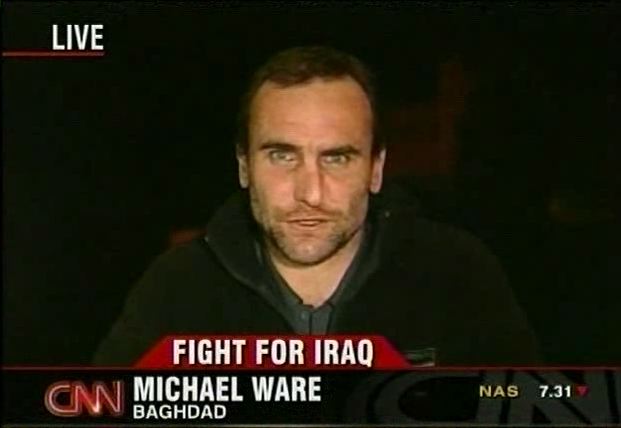NR: "This evidence has definitely been out there."

Click photo to play
Length: 3:19
KYRA PHILLIPS: Deadly arsenal, explosive claims. You're seeing powerful bombs that can punch through the toughest armor. They targeted coalition forces in Iraq, but the U.S. says they came from next door. Armed with these pictures, senior defense officials are accusing an elite Iranian military force of arming Iraqi Shiite groups.
CNN's Michael Ware is in Baghdad with more -- Michael.
MICHAEL WARE, CNN CORRESPONDENT: Yes, Kyra. What we had is the U.S. military, through three officials who could not be taped or named -- a senior defense official and a defense intelligence analyst and an explosives expert -- paint the picture of what they say Iran is doing here in Iraq.
They say that the elite Quds Force from the Iranian Revolutionary Guards Corps is directing a sophisticated program that is funneling weapons to Shia militia and insurgent groups and is killing U.S. and British troops.
The focus of this particular briefing was the supply of those weapons. In particular, the explosively formed penetrator or EFP. This is the most lethal roadside bomb that you see here in the war in Iraq. It's the one that punches through American armor, and indeed, U.S. military intelligence says 170 British and American troops have died as a result of this Iranian-supplied weapon since it first appeared in May 2004.
They also talked about the supply of all sorts of weapons, including mortars exactly like these ones. Indeed, the analyst held these kind of mortars up at the briefing. CNN obtained these last year, and we aired them at that time.
These, say U.S. military intelligence, come from Iran. The caliber, the assembly and its geometry all indicators that it comes from Tehran. Essentially they're saying that Iran is fighting a surrogate war with America here in Iraq. Ironically, precisely what the CIA did with the Mujahideen when they fought the Soviets in Afghanistan in the 1980s -- Kyra.
PHILLIPS: You know, Michael, this is actually the first time we're actually seeing something for real. You've actually got a piece of the weaponry. But we've heard these accusations before. Why is the U.S. laying out this case now? And why are we actually getting visuals from reporters like you?
WARE: Well, that's an interesting question. I'm sure it's not coincidental. I mean, this evidence has been out there for two or three years. I mean, we've been coming across materials like this for at least that long. And even in the military's audio-visual display, some of the examples they showed dated back two years. So this evidence has definitely been out there.
Now, for example, in the past, when you asked U.S. military intelligence about materials like this, which are here in the country, clearly, having been made in 2006, they're not being made here. They crossed the border. In the past, officials would say, "Well, they've come from Iran, but we can't say whether the government did it or not."
Well, now they're saying, yes, we can. They're saying that in Iran munitions like these are so well controlled you just can't ship them wholesale across the border without government complicity. And they're saying we have the evidence that it's the Quds Force indeed, that's doing it.
PHILLIPS: All right. Michael Ware live from Baghdad, thank you.
